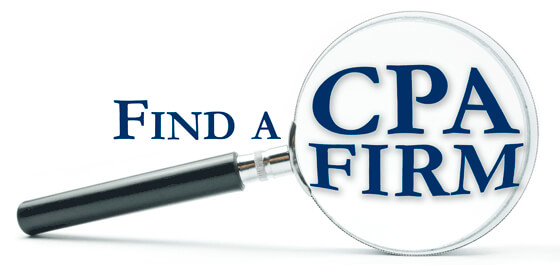Browsing Compliance: Just How Accounting and Assurance Solutions Safeguard Your Business
In today's intricate regulative landscape, steering conformity is increasingly critical for companies intending to support financial integrity and transparency. CPA Firm. Accounting and assurance services offer as important tools in this undertaking, making sure adherence to established structures like GAAP and IFRS. By carrying out comprehensive audits and enhancing interior controls, these solutions not only determine potential dangers but likewise boost stakeholder count on. As companies grapple with the ramifications of non-compliance, comprehending the multifaceted role of these solutions ends up being critical. What methods can be used to properly incorporate these practices into your service framework?
Comprehending Conformity Demands
Compliance demands in bookkeeping and assurance solutions are crucial for guaranteeing the honesty and reliability of economic coverage. These requirements incorporate a range of laws and requirements that organizations should abide by, making certain that economic statements are not only accurate but likewise clear. Secret regulatory frameworks include Usually Accepted Accounting Concepts (GAAP) and International Financial Coverage Specifications (IFRS), which direct the preparation of economic statements in numerous jurisdictions.
In addition, compliance prolongs to legislations such as the Sarbanes-Oxley Act, which mandates rigorous reforms to improve monetary disclosures and stop bookkeeping scams - Frost PLLC. Organizations are also subject to audits to confirm compliance with these criteria, reinforcing the demand for robust inner controls and governance techniques

The Duty of Accounting Providers
Accounting solutions play an important function in the monetary health of organizations, as they routinely offer significant support for decision-making procedures. These solutions incorporate a variety of functions, consisting of bookkeeping, monetary declaration preparation, tax obligation conformity, and budgeting. By diligently tracking monetary deals and ensuring accurate record-keeping, audit specialists allow services to maintain a clear sight of their financial placement.
Additionally, bookkeeping solutions help with calculated preparation and operational effectiveness. With the evaluation of monetary data, organizations can recognize trends, assess efficiency metrics, and assign resources efficiently. This logical insight is crucial for crafting educated business techniques and mitigating potential economic risks.
Additionally, bookkeeping solutions play a critical function in making certain conformity with governing demands. By remaining upgraded on modifications in tax regulations and accounting requirements, specialists can help companies navigate intricate conformity landscapes, consequently decreasing the risk of penalties or legal problems.
Assurance Solutions Described
Assurance solutions are a crucial element of the broader financial landscape, enhancing audit services by offering independent analyses of financial information. These services boost the integrity and credibility of financial statements, which is vital for stakeholders such as financiers, regulators, and management. Assurance solutions encompass a variety of tasks, consisting of audits, testimonials, and compilations, each varying in the degree of assurance offered.
An audit, as an example, offers the greatest level of guarantee, involving a comprehensive examination of an entity's economic documents and internal controls. On the other hand, a review supplies limited assurance, largely counting on analytical treatments and queries instead of substantial screening. Compilations, while valuable for offering monetary declarations, do not supply any type of guarantee concerning the precision or completeness of the details.
The main purpose of guarantee services is to minimize information asymmetry in between events, thus promoting trust fund and educated decision-making. By engaging expert accounting professionals to execute these solutions, organizations can boost their openness and show conformity with applicable regulations, ultimately bolstering their reputation in the marketplace. This not only help in governing adherence however likewise imparts self-confidence amongst stakeholders pertaining to the honesty of economic coverage.
Determining and Minimizing Dangers
Recognizing and alleviating threats is crucial for keeping the stability of financial reporting and guaranteeing effective governance within companies. The procedure begins with a detailed threat evaluation, which includes assessing prospective vulnerabilities that can impact monetary statements or functional processes. This assessment must encompass both interior and outside factors, including governing changes, market variations, and technical advancements.
Once risks are recognized, organizations can apply strategies to alleviate them. This may consist of developing robust interior controls, carrying out normal audits, and cultivating a society of conformity throughout the company. Training employees on risk recognition and finest practices in accounting can additionally enhance the company's ability to handle risks effectively.
Using advanced data analytics can likewise play an important duty in danger reduction. By analyzing patterns and patterns, organizations can proactively resolve potential concerns before they rise right into considerable issues. In addition, engaging with audit and assurance provider can use valuable insights and knowledge in recognizing and managing threats.
Improving Conformity Procedures
Effective risk management sets the stage for organizations to improve compliance processes, ensuring adherence to guidelines while enhancing functional performance. By recognizing potential risks and carrying out positive actions, businesses can create a framework that simplifies conformity efforts throughout different departments. This integrated technique not just lessens the chance of governing violations however likewise decreases the sources spent on compliance activities.
Central to streamlining conformity is the fostering of modern technology remedies, such as conformity monitoring software and automated reporting devices. These innovations facilitate real-time surveillance of compliance status, enabling companies to react quickly to governing modifications. Additionally, developing clear plans and procedures improves communication and responsibility, encouraging workers to recognize their duties in keeping compliance.

Training and ongoing education play an essential role in fostering a society of conformity within the company (accounting Firm). By outfitting staff with the required knowledge and abilities, companies can ensure that conformity becomes an innate part of their operations. This comprehensive approach ultimately brings about a more effective conformity procedure, allowing organizations to concentrate on development and development while guarding against governing dangers

Enhancing Organization Reputation
A solid commitment to compliance greatly boosts service trustworthiness in today's competitive landscape. When companies abide by developed guidelines and requirements, they signal to stakeholders-- consisting of customers, capitalists, and regulative bodies-- that they run with stability and transparency. This dedication not only cultivates count on yet likewise strengthens connections with clients and companions, placing business as a reliable entity in its market.
Incorporating accountancy and assurance solutions as part of conformity methods additionally reinforces this trustworthiness. These solutions give unbiased assessments of financial statements and functional processes, making sure that the organization is not just compliant yet additionally effective. Normal audits and assessments function as a safeguard, determining possible risks and areas for improvement, which can improve total organization efficiency.
Services that focus on conformity show a positive method to administration, threat management, and honest methods. This aggressive position boosts their reputation, differentiating them from rivals that might overlook compliance. In an era where consumers and financiers are progressively critical, a durable conformity structure comes to be a cornerstone for sustainable growth and long-term success, eventually leading to greater market confidence and stakeholder loyalty.
Building a Compliance Society
Cultivating a conformity culture within a company needs a deliberate and calculated method that engages employees in any way levels. It begins with leadership dedication, where execs and managers set the tone by prioritizing compliance as a core value. This commitment should be connected plainly, ensuring that all staff members recognize the importance of sticking to guidelines and ethical criteria.
Training and education and learning play a crucial duty in building this society. Routine workshops and seminars can aid staff members identify compliance risks and recognize their obligations in reducing them - Frost PLLC. Furthermore, developing obtainable resources, such as compliance handbooks or online modules, equips workers to seek guidance when required
Incentivizing compliance behavior even more strengthens its significance. Acknowledgment programs that compensate staff members for showing compliance-oriented activities can inspire others to line up with organizational standards. Open lines of communication are also necessary; workers must feel comfortable reporting concerns without worry of retaliation.
Lastly, organizations must implement durable monitoring and evaluation devices to evaluate conformity performance. By regularly evaluating and refining conformity strategies, services can cultivate a setting where conformity is not just a requirement yet an important part of the business values, eventually guarding their track record and functional stability.
Regularly Asked Inquiries
What Are the Expenses Related To Accounting and Assurance Solutions?
Expenses connected with accountancy and assurance solutions commonly consist of costs for professional services, software program expenses, training, and continuous conformity tracking. These financial investments are necessary for making certain governing adherence and maintaining financial integrity within a company.
How Often Should Companies Conduct Compliance Audits?
Organizations should carry out compliance audits at least yearly to ensure adherence to laws and identify potential threats. Tax Services. Nonetheless, even more regular audits might be required for markets with fast governing changes or enhanced examination
Can Small Company Profit From Assurance Services?
Yes, small companies can significantly profit from guarantee services. These solutions boost trustworthiness, supply valuable insights into financial health and wellness, and assurance compliance with regulations, ultimately fostering stakeholder count on and sustaining informed decision-making for sustainable development.
What Fines Exist for Non-Compliance?
Non-compliance can cause substantial charges, consisting of penalties, lawful action, and functional constraints. Furthermore, reputational damage and you can look here loss of consumer depend on may happen, eventually affecting a business's monetary security and lasting success.
Just how Do I Pick the Right Accounting Company?
Selecting the ideal accountancy firm involves assessing their competence, industry experience, and online reputation. Consider their service offerings, customer testimonies, and compatibility with your business worths to assure a productive and credible collaboration.